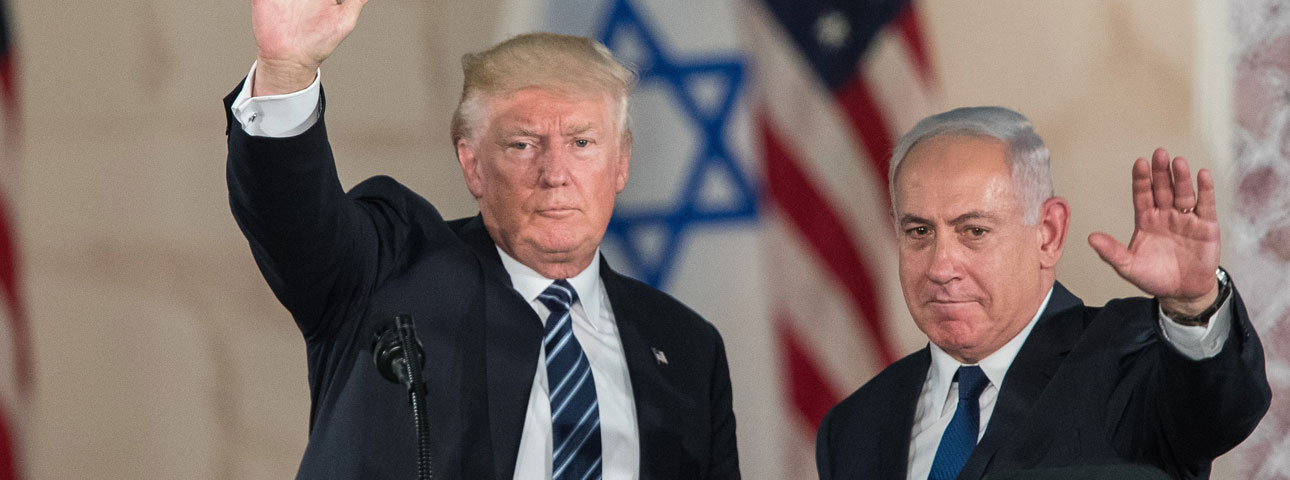Can the “Deal of the Century” be Implemented Under a Transitional Government?
What are the legal barriers standing in the way of the current government implementing the U.S.'s “Deal of the Century” peace plan?

President Donald Trump and PM Benjamin Netanyahu | Flash 90
What is a transitional government?
Once a government has 'fallen' and lost the confidence of the Knesset, and before a new government has received a vote of confidence and been sworn in, Israeli law stipulates that the outgoing government remain in office to ensure continuity in running the essential matters of state. This type of government is often referred to as a 'transitional' government and by tradition and precedent avoided making non-urgent decisions that have long-term implications for the country.
What are the legal barriers to the current government approving the U.S. “deal of the century” peace plan?
Approving a peace plan on the eve of elections is unreasonable. Nevertheless, at least in theory – it is possible to carry out an annexation of territories.
Is a transitional government allowed to make decisions on such matters?
A transitional government has far less discretion, than a regular government. It is authorized to act only in cases in which an “essential public need” demands immediate action and cannot be delayed until after the elections. This is all the more so in the case of a transitional government such as the one currently in power, which has never received a vote of confidence from the Knesset. It is probable that the Attorney General will rule that in keeping with legal precedents, a transitional government may not make such decisions, unless this is the case. Thus, it is unlikely that a government decision to carry out an annexation will be approved by the Supreme Court.
What precedents exist on this matter?
A petition submitted by Prof. Hillel Weiss to the Supreme Court (sitting as the High Court of Justice) against Ehud Barak, who held negotiations with Yasser Arafat after having resigned as prime minister, claimed that Barak’s transitional government was going past the limits of its powers by entering into these negotiations. The Court, under Justice Aharon Barak, rejected the petition in a majority decision, while also sending out clear signals that the limits of reasonable authority within which a transitional government is entitled to make dramatic decisions, is considerably narrower than that of a regular government. The ruling was also based on the Attorney General’s guarantee at the time, that should any peace agreement be reached, it would in any case be submitted to the Knesset for approval.
What about the “deal of the century” plan being approved via Knesset legislation?
There is no legal barrier to the Knesset passing such legislation, as long as there is broad agreement in its favor. According to accepted practice, foreign policy agreements are in any case submitted for Knesset approval, so as to grant them with legitimacy. This practice was followed by the late Prime Minister Menachem Begin in the case of the peace deal with Egypt, and by the late Prime Minister Yitzhak Rabin with the Oslo Accords and the peace agreement with Jordan.
However, it is commonly accepted that a Knesset that has been dissolved, cannot pass legislation without the approval of the Arrangements Committee, which comprises representatives of the two main Knesset blocs and the Speaker of the Knesset. It is currently chaired by MK Avi Nissenkorn (Blue and White) and MK Miki Zohar (Likud), and includes Knesset Speaker Yuli Edelstein.
After the elections, will a government that is voted in by the Knesset be able to enact an annexation order by government resolution?
In order to apply Israeli law to territories that were part of the “Mandatory Palestine” (which include the Jordan Valley, and Judea and Samaria), a government resolution is sufficient. In practice, the extension of Israeli law to territories conquered in the Six Day War was eventually grounded in legislation over the years, via the Basic Law: Jerusalem the Capital of Israel, and the Golan Heights Law.
Will a referendum be necessary in order to approve the “deal of the century”?
The Basic Law: Referendum requires a referendum to be held in the event of an agreement or decision that involves yielding territories to which Israeli law applies. The full plan requires Israel to transfer to the Palestinians, in an event the Palestinian state will be formed, areas from the Negev, which are now part of Israel. However, it also states that a referendum will be unnecessary if the decision is passed by a majority of 80 Knesset members. It should also be noted that the Referendum Law can be amended with a simple majority of just 61 Knesset members.
